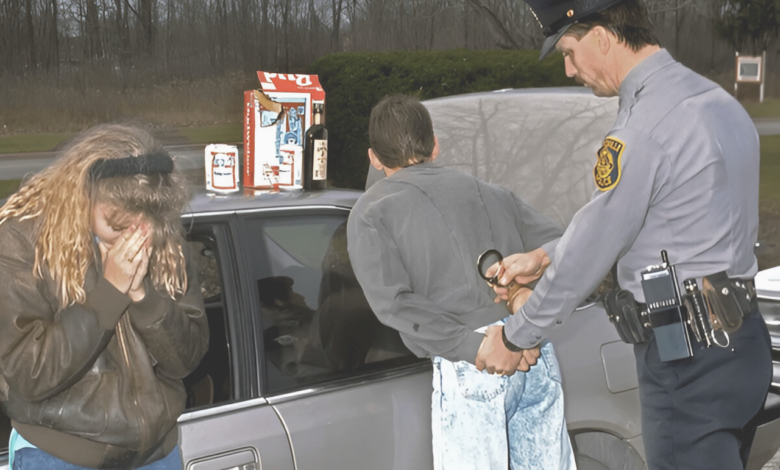DUI Laws in Colorado: Penalties and Legal Defenses for 2025
Colorado DUI laws 2025 Know penalties, legal defenses & new updates. Fines, jail time & how to fight charges. Expert advice inside.

Driving under the influence (DUI) laws in Colorado are designed to be strict and uncompromising, with significant penalties for those convicted. As we enter 2025, the state has further tightened its DUI Laws to enhance road safety and reduce alcohol-related accidents. A DUI charge in Colorado can lead to severe consequences, including hefty fines, license suspension, mandatory alcohol education programs, and even jail time especially for repeat offenders. Understanding these laws is critical for all drivers, as even a first-time offense can have long-lasting repercussions on one’s personal and professional life.
The legal landscape surrounding DUI Laws in Colorado is complex, with different penalties based on factors such as blood alcohol concentration (BAC), prior offenses, and whether the incident involved aggravating circumstances. However, being charged with a DUI does not always mean a conviction is inevitable. There are several legal defenses that can be used to challenge the charges, from questioning the validity of traffic stops to disputing breathalyzer results. This article will explore the updated DUI penalties for 2025, examine potential legal defenses, and provide guidance for those navigating the legal system after an arrest. Knowledge of these laws can help drivers make informed decisions and protect their rights if faced with a DUI charge.
DUI Laws in Colorado
Updated DUI Penalties in Colorado for 2025
Colorado categorizes DUI offenses based on blood alcohol concentration (BAC) levels and prior convictions. The legal limit remains 0.08% for standard drivers, but commercial drivers face a 0.04% limit, and those under 21 can be charged with a DUI for any detectable alcohol (a “Zero Tolerance” policy).
First-Time DUI Offense
A first-time DUI conviction in Colorado carries serious consequences. Offenders may face up to one year in jail, though most receive probation. Fines range between 600and1,000, along with court costs and mandatory alcohol education classes. Additionally, the DMV imposes a nine-month license suspension, though restricted driving privileges may be available with an ignition interlock device (IID).
Second DUI Offense
A second DUI within seven years escalates penalties significantly. Offenders face 10 days to one year in jail, with mandatory minimum sentencing. Fines increase to between 600and1,500, and the license suspension extends to one year. An IID is required for at least two years after license reinstatement.
Third and Subsequent DUIs
A third DUI is a felony in Colorado, punishable by up to one year in prison and fines up to $1,500. License revocation lasts for two years, and offenders must install an IID for at least two years after regaining driving privileges. Habitual offenders may face longer prison sentences and permanent license revocation.
DWAI (Driving While Ability Impaired)
Colorado also penalizes DWAI, which applies when a driver’s BAC is between 0.05% and 0.08%. While less severe than a DUI, a DWAI conviction still results in fines, points on your license, and potential jail time for repeat offenses.
Aggravating Factors That Increase Penalties
High BAC Level (0.15% or Above)
Colorado imposes enhanced penalties for drivers with a blood alcohol concentration (BAC) of 0.15% or higher—nearly double the legal limit. These cases often carry mandatory minimum jail sentences, longer license suspensions, and extended ignition interlock device (IID) requirements.
DUI with a Minor in the Vehicle
Driving under the influence with a passenger under 16 years old leads to additional child endangerment charges, which can result in heavier fines, mandatory jail time, and potential involvement from child protective services.
Prior DUI Convictions
Repeat offenses within a seven-year lookback period significantly increase penalties. A second DUI brings harsher fines and longer jail time, while a third DUI becomes a felony, punishable by prison time and multi-year license revocation.
DUI Causing Injury or Death
If an impaired driver causes an accident resulting in serious bodily harm or fatality, they may face vehicular assault (felony) or vehicular homicide charges, which carry lengthy prison sentences.
Refusing a Chemical Test
Under Colorado’s Express Consent Law, refusing a breath, blood, or urine test triggers an automatic license suspension and can be used against the driver in court as evidence of guilt.
Driving on a Suspended or Revoked License
If a driver is arrested for DUI while their license is already suspended due to a prior offense, they face additional criminal charges, extended revocation periods, and possible jail time.
Excessive Speeding or Reckless Driving
Combining DUI Laws with dangerous driving behaviors (e.g., speeding 20+ mph over the limit, street racing, or hit-and-run) can lead to aggravated sentencing, including higher fines and longer incarceration.
Legal Defenses Against DUI Charges in Colorado
Facing a DUI charge does not automatically mean a conviction. An experienced DUI attorney can challenge the evidence and potentially reduce or dismiss charges. Common defenses include:
Improper Traffic Stop
Police must have reasonable suspicion to pull a driver over. If the stop was unlawful, any evidence gathered may be inadmissible in court.
Inaccurate Breath or Blood Tests
Breathalyzers and blood tests can produce false results due to calibration errors, improper administration, or medical conditions like diabetes or acid reflux.
Rising Blood Alcohol Defense
Alcohol takes time to absorb into the bloodstream. A driver’s BAC may have been below the legal limit while driving but increased by the time testing occurred.
Violation of Miranda Rights
A common defense in Colorado DUI Laws involves challenging whether law enforcement properly advised the suspect of their Miranda rights during arrest. These constitutional rights, including the right to remain silent and the right to an attorney, must be read before custodial interrogation. If officers fail to provide this warning, any self-incriminating statements made by the defendant may be suppressed in court.
Plea Bargains and Diversion Programs
In Colorado, first-time DUI offenders may qualify for plea bargains that reduce charges to lesser offenses like reckless driving or “wet reckless,” avoiding a DUI Laws conviction. Prosecutors sometimes offer deferred sentencing agreements, where charges are dismissed after completing probation, fines, and alcohol education. Diversion programs provide an alternative to trial, requiring offenders to complete substance abuse treatment and community service in exchange for dropped charges.
Read More: Asylum and Refugee Legal Support in Texas What You Should Know
Conclusion
Colorado’s DUI laws for 2025 reflect a continued effort to deter impaired driving through stricter penalties and enforcement. A conviction can have life-altering consequences, from financial burdens to loss of driving privileges and incarceration. However, with the right legal strategy, many defendants can challenge their charges or minimize penalties.
If you or someone you know is facing a DUI charge, consulting an experienced attorney should be the first step. Understanding your rights and the available defenses can make a significant difference in the outcome of your case. Staying informed about Colorado’s DUI laws ensures that drivers remain compliant and avoid the severe repercussions of impaired driving.
FAQs
What is the legal BAC limit for a DUI Laws in Colorado?
The legal limit is 0.08% for most drivers, 0.04% for commercial drivers, and any detectable alcohol for drivers under 21.
Can I refuse a breathalyzer test in Colorado?
Yes, but refusal triggers an automatic license suspension under Colorado’s Express Consent Law.
How long does a DUI Laws stay on my record in Colorado?
A DUI Laws conviction remains on your record permanently, though penalties lessen after 10 years for sentencing purposes.
Is jail time mandatory for a first-time DUI Laws?
Not always, but high BAC levels or aggravating factors can lead to mandatory jail sentences.
Can I get a DUI Laws expunged in Colorado?
Under recent law changes, some DUI convictions may be eligible for sealing after a waiting period.











